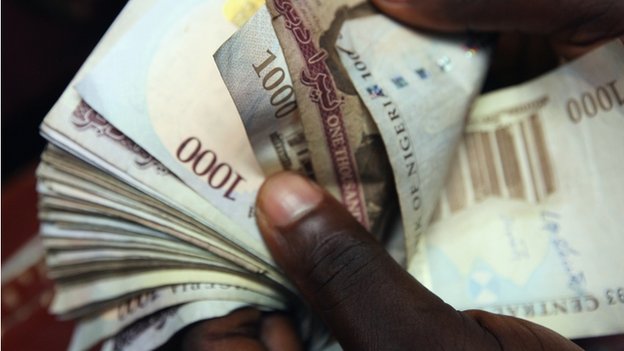The Central Bank of Nigeria may introduce a dual exchange-rate system and weaken the naira when it unveils a new policy as soon as this week, according to a person who attended a meeting between governor Godwin Emefiele and bankers.
The regulator would probably make an announcement in a circular to banks, said the person, who asked not to be identified discussing the private talks held on June 9 in Abuja.
Analysts including those at Renaissance Capital, have said they expect the central bank to allow the naira to weaken around a trading band in the interbank market, while allocating dollars at a fixed rate to industries the government deems strategic.
The central bank was still working out details of the system, the person said, and might also reinstate a minimum holding period for foreign investors buying naira bonds.
Emefiele has faced calls for more than a year to devalue the currency, as other oil exporters, from Russia to Kazakhstan and Angola have done, amid a rout in crude prices since mid-2014 to about $50 a barrel.
Investment into Nigeria has shrivelled as foreigners are put off by capital controls needed to defend the peg, while local businesses have struggled to import raw materials and equipment.
Isaac Okorafor, a spokesman for the country’s central bank, did not answer calls.
Africa’s biggest economy removed a requirement for foreign investors to hold local-currency debt for at least one year in mid-2011. That led to Nigeria’s inclusion the following year in JPMorgan Chase’s local-currency emerging-market bond indices, tracked by more than $200bn of funds, and also prompted naira yields to plummet. The country was kicked out of the indices in September 2015, because JPMorgan said the currency restrictions made it hard for investors to trade naira bonds.
Nigeria has held the naira at 197/$-199/$ since March 2015, with Emefiele and President Muhammadu Buhari insisting that a weaker currency would leave consumers facing higher prices.
That has already happened, with inflation accelerating to an almost six-year high of 13.7% in April. The statistics bureau is due to announce figures for May on Tuesday.
Economists have blamed the capital controls for exacerbating a foreign-exchange liquidity crisis a caused by the drop in the price of oil, which accounted for two-thirds of government revenue and 90% of exports in 2014. Growth was negative in the first quarter of 2016 for the first time since 2004, and a recession, or two consecutive quarters of contraction, was imminent, the central bank said last month.
Bloomberg

